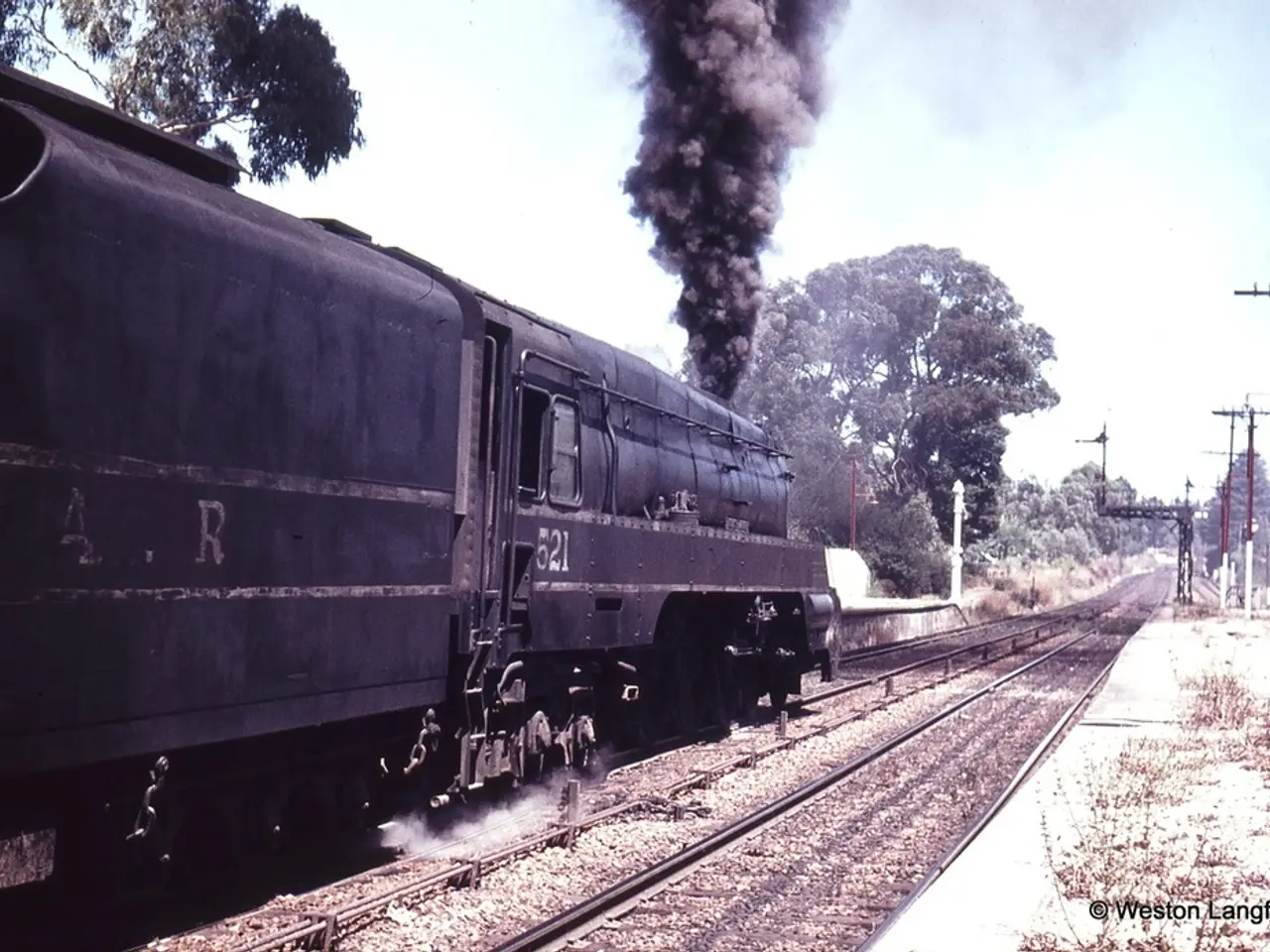Rail traffic encounters challenges due to insufficient sealing in railway freight cars, according to Heimfeld's statement.
In an incident that occurred on Thursday, a propane-butane mixture tanker wagon experienced a leak near the Holborn refinery. The leak, located in the area of a valve, was noticed by refinery employees shortly after 5 pm.
Upon detection, the fire department and police were promptly called to the scene to respond to the leak. The leak did not pose a risk of explosion, as confirmed by the fire department.
The leak on the railway line between Harburg and the city caused a temporary halt in train and S-Bahn operations. However, the leak was quickly contained, and the area was sealed off around 6:45 pm. Trains and S-Bahns resumed operation shortly after the leak was secured.
Safety measures and procedures for dealing with such leaks involve early detection, controlled ventilation, immediate emergency response, and preventive maintenance. In industrial settings like refineries, propane-butane (LPG) is odorized with ethyl mercaptan, a strong-smelling chemical, to make leaks easier to detect by smell. Gas analyzers with technologies such as NDIR, catalytic bead, or photoionization detectors are used to detect leaks within seconds.
Upon detecting a leak, immediate evacuation of personnel from the area is necessary to avoid exposure and explosion risks. Shutting off the supply valves to stop the leak, using intrinsically safe equipment, and avoiding any actions or tools that could produce sparks are also crucial. Notifying refinery emergency response teams equipped for hazardous gas incidents and using remote gas analyzers and integrating alerts into safety control systems for continuous monitoring and prompt action are essential.
Preventive practices such as regular inspection and maintenance of tanker wagons and their fittings, use of appropriate leak detectors for rapid identification, and training personnel in leak recognition and response are also vital in minimizing leak risks near refineries. Proper positioning and securing of tanker wagons to prevent punctures or damage, and avoiding storing propane-butane cylinders or bottles in confined spaces or below ground level where gas can accumulate undetected are additional preventive measures.
This incident serves as a reminder of the importance of adhering to safety measures and procedures for handling hazardous materials like propane-butane near refineries. The quick response and containment of the leak by the fire department and police ensured the safety of the public and the refinery workers.
- In the general news, discussions about the necessity of adhering to safety measures in other industries, such as public-transit and transportation, are relevant, considering the recent leak incident involving a propane-butane mixture tanker wagon near the Holborn refinery.
- Although the financial implications of this incident are yet to be assessed, it underscores the need for preventive practices like regular inspection and maintenance of equipment to avoid such accidents in the future, not only in the finance sector but across industries.
- Besides the immediate response to the leak, it is crucial to integrate alerts into safety control systems for continuous monitoring and prompt action, an approach that could potentially prevent accidents in various sectors, such as the general-news, finance, and public-transit industries.




